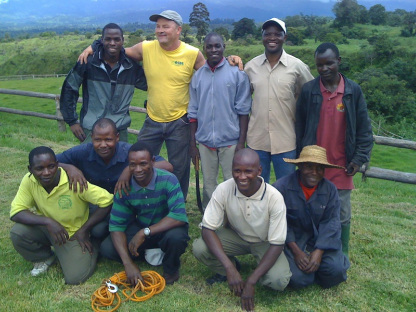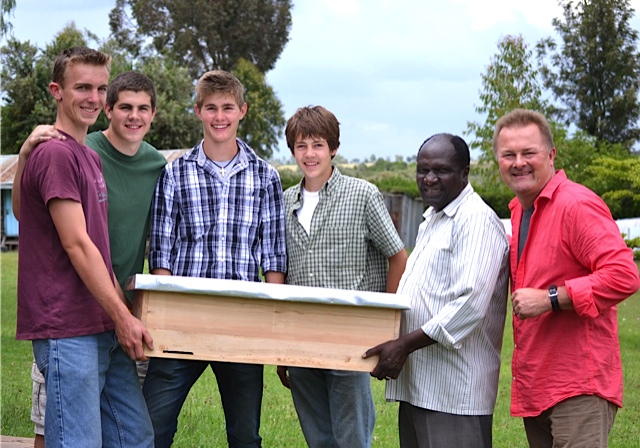Why promote African beekeeping?

In seeking sustainable micro-enterprise projects that can impact the lives of indigenous African people, beekeeping is near the top. Beekeepers do not need a large area in which to put their hives. The bees do not need constant attention, as they are very self-sufficient. The production of hives and processing of
honey is relatively inexpensive. No in-depth technical knowledge is needed to keep bees. One needs only patience and a love for God’s creatures.
Beekeeping also helps rural people recognize the importance of preserving their natural resources. In rural Africa slash and burn farming is still a big problem. Standing forest is one of the major sources of nectar,
which bees turn into honey. Thus a forest left to grow is the biggest asset to a beekeeper. Once local agriculturalists realize the ability to get a profit from the land without slashing the forest, they will be more conscious of the fragile ecosystem they live in. The bottom line is helping people see that they can make
a living from the forest by respecting it.
Pollinators like bees make a big difference in local farmland by pollinating the various cash crops grown there. Yields up to 30 percent more are available to those farmers who have hives located in proximity to their fields and orchards.
Farming and beekeeping go hand in hand. In most African countries farming is still the biggest profession. Since beekeeping is an occupation available to all farmers, it can seriously augment their income.
Diversity of crops grown and products produced is what makes it so a farmer can survive and be economically stable.
Honey as sweetener, medicine and cash crop adds a new facet to his agricultural diversity. Wax, another by product from the hive, can also be
sold.
Join with us in encouraging and aiding African people in beekeeping. Since 1/3 of all the food in the world comes from pollinators, especially honey bees, the life you change may just be your own.
honey is relatively inexpensive. No in-depth technical knowledge is needed to keep bees. One needs only patience and a love for God’s creatures.
Beekeeping also helps rural people recognize the importance of preserving their natural resources. In rural Africa slash and burn farming is still a big problem. Standing forest is one of the major sources of nectar,
which bees turn into honey. Thus a forest left to grow is the biggest asset to a beekeeper. Once local agriculturalists realize the ability to get a profit from the land without slashing the forest, they will be more conscious of the fragile ecosystem they live in. The bottom line is helping people see that they can make
a living from the forest by respecting it.
Pollinators like bees make a big difference in local farmland by pollinating the various cash crops grown there. Yields up to 30 percent more are available to those farmers who have hives located in proximity to their fields and orchards.
Farming and beekeeping go hand in hand. In most African countries farming is still the biggest profession. Since beekeeping is an occupation available to all farmers, it can seriously augment their income.
Diversity of crops grown and products produced is what makes it so a farmer can survive and be economically stable.
Honey as sweetener, medicine and cash crop adds a new facet to his agricultural diversity. Wax, another by product from the hive, can also be
sold.
Join with us in encouraging and aiding African people in beekeeping. Since 1/3 of all the food in the world comes from pollinators, especially honey bees, the life you change may just be your own.


